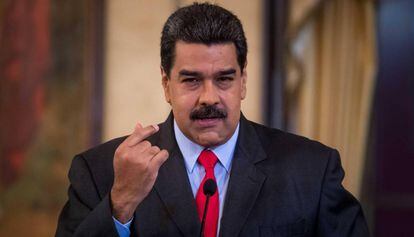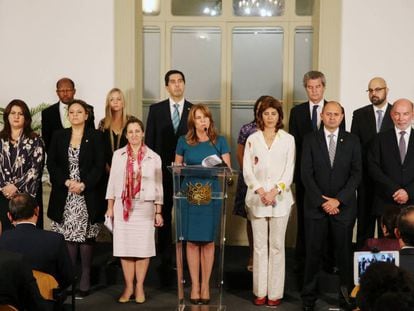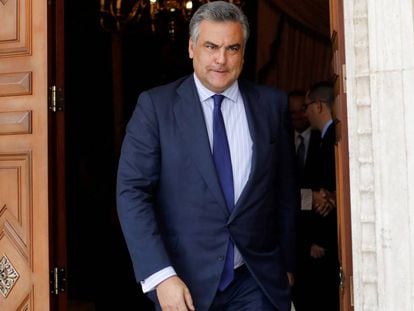Venezuela’s Maduro says he will attend regional summit with or without an invitation
Peru withdrew the president’s invite to Summit of the Americas amid concerns over upcoming elections

President Nicolás Maduro of Venezuela announced on Thursday that he will attend the Summit of the Americas, even though host country Peru has withdrawn his invitation.
“They don’t want to see me in Lima [Peru’s capital], but they are going to see me because I will go to the Summit of Americas, rain hail or shine, by air, land or sea,” said Maduro at a press conference.
Many of Maduro’s strongest political adversaries have been jailed, disqualified or forced to flee the country
On Tuesday, Peru’s foreign minister, Cayetana Aljovín, announced that Maduro’s presence “will no longer be welcome” at the regional meeting scheduled for April 13 and 14 in Lima, just eight days before the Venezuelan presidential election.
The announcement came in response to Maduro’s decision to call presidential elections without support from opposition groups – a move that has drawn widespread criticism. The 14 nations which make up the Lima Group, comprising some of the region’s strongest economies, issued a joint statement calling for the Venezuelan leader to set a new election date. In its statement, it noted that it is impossible to hold free and fair elections when there are political prisoners, when parties are not fully participating in politics, and when political leaders are being arbitrarily detained or barred from running for office.
But Maduro has denied the accusations. “The indignity of the president and ministers who created this mess they call the Lima Group will be enshrined in history,” said Maduro.
According to the Venezuelan leader, Peruvian President Pedro Pablo Kuczynski has rethought the decision and now wants Maduro to attend the regional meeting. “A letter arrived from Pedro Pablo Kuczynski inviting me to the Summit,” he said.
Maduro warned that the presidential elections will take place on April 22, whether or not the oppositions agrees to participate. “What happens if the opposition doesn’t register? In Venezuela, there will be elections and there will be a legitimate president who is going to govern the country until 2025. It is not the first time we have had an opposition that tried to improvise and failed,” he said.
Rain hail or shine, by air, land or sea, I will go to the Summit of Americas Venezuela President Nicolás Maduro
The call for early presidential elections has worsened the political crisis in Venezuela. The government and the opposition failed to reach an agreement despite months-long talks hosted by the Dominican Republic. Venezuela’s opposition alliance, the Democratic Unity Roundtable (MUD), has not yet confirmed the role it will play in the upcoming vote.
Justice First (PJ), one of the principal parties in the alliance, is pushing for the group to choose an opposition candidate to run against Maduro. “We need to choose a leader who can be our spokesperson and lead the fight to demand the regime comply with the electoral conditions that will allow a free and democratic process,” it said in a press release.
The PJ statement said they are willing to participate in the elections if there is transparency and international observers.
Disqualified and exiled opponents
Most of Venezuela’s main opposition leaders have been jailed, disqualified from running or have fled the country. Henrique Capriles, who ran twice for president, has been banned from political activity; Leopoldo López, the founder of the opposition Popular Will party (VP), is under house arrest, while Antonio Ledezma, the former mayor of Caracas, fled Venezuela in November.
Meanwhile, Miguel Rodríguez Torres, a former interior and justice minister, has been disqualified from the upcoming election, and Rafael Ramírez, the former minister of energy and oil and ex-president of the state-run oil agency PDVSA, says that he is being investigated on corruption charges due to his disagreements with Maduro. By getting rid of his strongest political adversaries, Maduro has improved his chances of winning another presidential term and of governing Venezuela until 2025.
English version by Melissa Kitson.












































